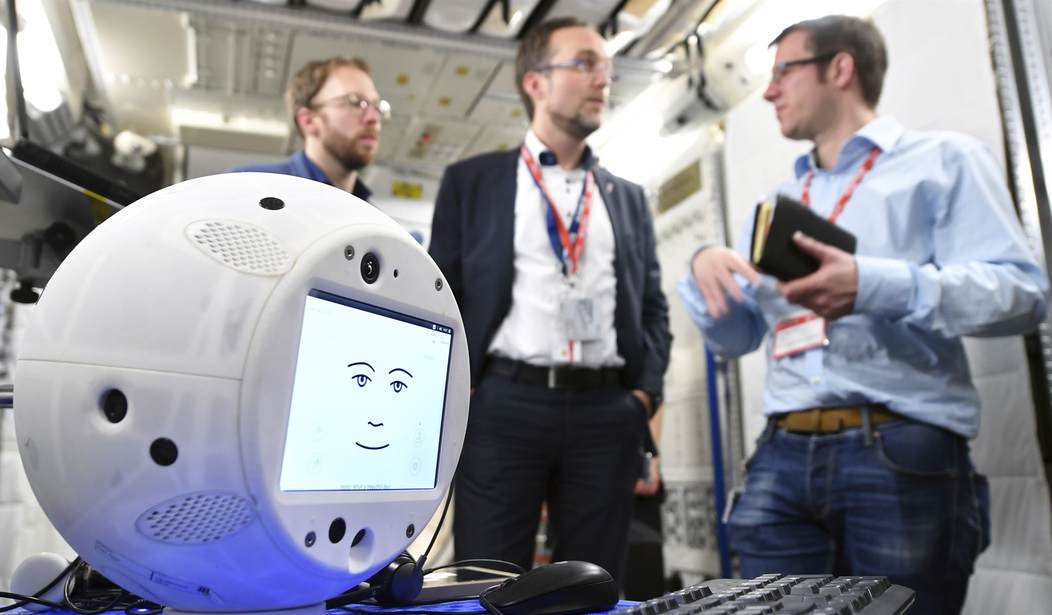Part of this year’s Colorado State Fair included a fine arts competition. Among the various categories for aspiring artists to enter was “Digital Arts / Digitally-Manipulated Photography.” A man named Jason Allen who works as a game designer and digital artist wound up entering one of his pieces in the contest and took home first prize. His celebrations were short-lived, however, when people looked a bit more closely into the information he provided about the piece and realized he had created it using an artificial intelligence text-to-image generator. Some critics immediately accused him of having won the contest fraudulently since he used AI to create it rather than digitally “painting” it from scratch. For his part, Allen is unrepentant and says that he has “no regrets.” He also believes that he followed the spirit of the rules. This raises two questions for us. First, is it ethical or somehow “cheating” to employ AI in this fashion? And second, has the AI gotten so good that it’s now more “creative” and “talented” than its human masters? (The Verge)
A game designer has sparked controversy after submitting an image created by an AI text-to-image generator to a state art competition and taking home first prize.
Jason Allen entered the artwork titled “Theatre d’Opera Spatial” in the “Digital Arts / Digitally-Manipulated Photography” category of the Colorado State Fair fine arts competition but created the piece using a popular text-to-image AI generator named Midjourney.
A Twitter post describing Allen’s win went viral earlier this week (and was first covered by Vice). The post elicited a strong response, with many users claiming that Allen had been deceptive in submitting the piece, particularly as most of the public is unaware of how text-to-image AI generators work. Allen, though, has defended his actions.
You can see the artwork in question in this brief video report from a local news outlet.
TL;DR — Someone entered an art competition with an AI-generated piece and won the first prize.
Yeah that's pretty fucking shitty. pic.twitter.com/vjn1IdJcsL
— Genel Jumalon ✈️ Nan Desu Kan (@GenelJumalon) August 30, 2022
Maybe I’m just old fashioned, but part of me wants to ask whether anything created on a computer is technically “art” in the sense that we’ve traditionally seen in fine arts competitions. If you’re not creating a painting or drawing using ink or pencils, etc., or sculpting something from clay or wood or stone, are you really “creating art?” Most of the other entries used Photoshop or other similar programs, so they really didn’t break out the easel and canvas either.
But I know some digital artists who create tremendous work, particularly those who assist the work of podcasters and other content creators to bring their work to life. That sure seems like art to me. Digging down to the next level, perhaps there is some merit to these complaints based on the “creative” element of the question. The people creating digital art from scratch still had an original vision of what they wanted the finished work to look like. They simply used a stylus and a keyboard to create it rather than a brush and a tube of oil paint. But Mr. Allen didn’t do that. He came up with a phrase or “prompt” that he fed into the Midjourney software. The AI came up with the art and the creator had no idea what it would look like until the system spit it out. So it wasn’t really his vision, was it?
Then again, he described how he went through many iterations of the prompt, “fine-tuning” it until it produced some images he felt were the best. So it wasn’t entirely random in nature. I’m honestly not sure at this point. But I would return to the other question I posed at the top. Realizing that art is subjective and beauty remains in the eye of the beholder, is Artificial Intelligence really capable of creating inspirational art that equals what humans can summon up and bring into reality? Can it actually be superior to the greatest human artists? If so, there is clearly an entirely separate avenue of debate over the future of AI beyond the boring old question of whether or not it’s getting ready to “wake up” and destroy its creators.
Meanwhile, people are trying to get AI programs to translate the language of animals. You can check out the details at the link, but scientists are attempting to train AI algorithms to decode the langue of everything from dolphins and birds to rodents and insects. Animal language is a subject I’ve been fascinated with for a very long time. For example, I spend a lot of time watching the birds we feed at our home. Crows in particular clearly seem to be speaking some sort of language and you begin to recognize the common patterns they employ after enough years of listening. And yet we have no idea what they are saying. Scientists have been trying to talk to the dolphins for more than a century and we’ve yet to exchange a single, coherent question and answer with them in their own language. (Though they seem to understand ours well enough.) I find it impossible to believe that the other animals aren’t communicating with each other, though perhaps not in as nuanced of a fashion as we do. Why is it such a challenge to crack the code and learn to speak with them?








Join the conversation as a VIP Member